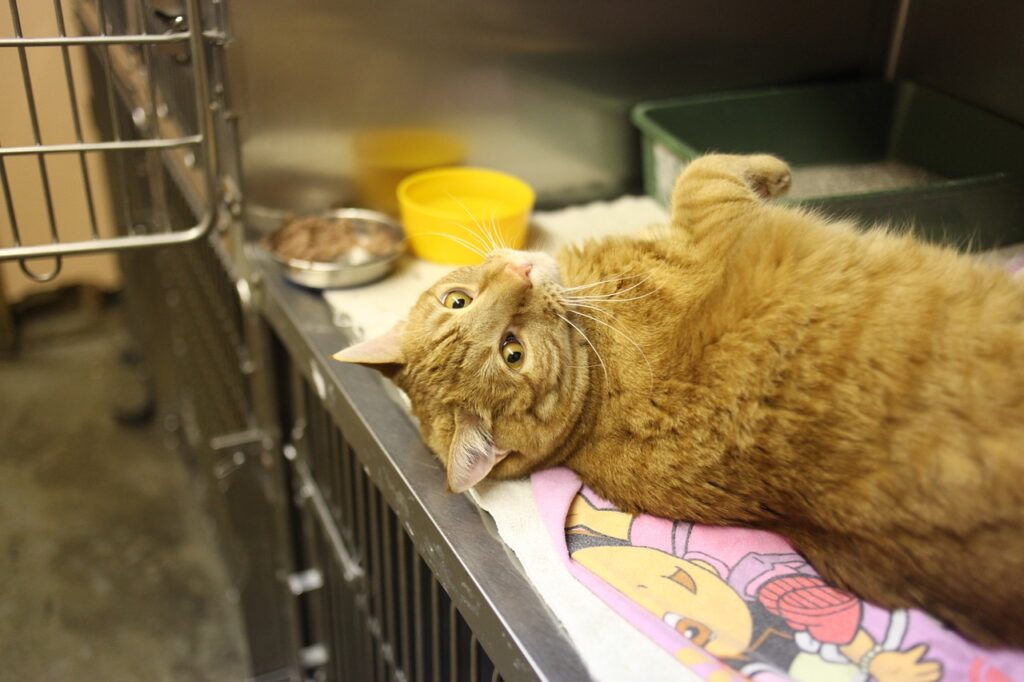Veterinary technology programs serve as the foundation for aspiring veterinary technicians, providing essential knowledge and hands-on experience in the field. These programs equip students with the necessary skills to excel in a rewarding career that plays a crucial role in animal healthcare. As the demand for skilled veterinary technicians continues to grow, enrolling in a vet tech program can pave the way for a fulfilling and in-demand profession.
Online Vet Tech Programs

Veterinary Tech Program from University of Missouri-Columbia
Online Bachelor of Science in Veterinary Technology

Veterinary Tech Program from Penn Foster
Veterinary Technician – Online Associate Degree

Veterinary Tech Program from Ashworth College
Veterinary Technician – Online Associate Degree
Choosing the Right Vet Tech Program
Selecting the right veterinary technology program is crucial for ensuring a successful career as a veterinary technician. Several factors should be taken into consideration when choosing a program that best aligns with your personal and professional goals.
Factors to consider when selecting a program
Keep in mind the following aspects when evaluating different veterinarian technology programs:
- Accreditation: It is essential to choose a program accredited by the American Veterinary Medical Association (AVMA) to ensure a high-quality education and eligibility for licensure and certification.
- Location: The geographical location of the program may impact your living and commuting expenses, as well as access to local veterinary facilities for hands-on training.
- Program length: Vet tech programs can vary in duration, typically ranging from two to four years. Consider your schedule and time commitment when selecting a program.
- Cost and financial aid options: Tuition and fees can vary significantly between programs. Explore available financial aid options, such as scholarships, grants, and loans, to help cover the costs of your education.
Importance of choosing an AVMA-accredited program
Enrolling in an AVMA-accredited veterinarian technology program is crucial for ensuring a high-quality education that meets industry standards. AVMA accreditation ensures that the program follows a rigorous curriculum that adequately prepares students for the Veterinary Technician National Examination (VTNE) and future professional responsibilities. Furthermore, many states require graduates of AVMA-accredited programs to obtain licensure or certification, making it a critical factor in your career success.
Online Vet Tech Programs
Online vet tech programs offer numerous benefits, particularly for adult learners and non-traditional students who require flexibility in balancing their work, family, and education commitments. These programs provide a convenient and accessible way to gain the necessary knowledge and skills required to become a veterinary technician, without the constraints of a traditional classroom setting.
There are several accredited online vet tech programs available, ensuring that students receive a high-quality education that meets the industry standards. Examples of such programs include the Penn Foster College Veterinary Technician Program, the San Juan College Veterinary Technology Distance Learning Program, and the Purdue University College of Veterinary Medicine Veterinary Nursing Distance Learning Program. These programs offer a combination of online coursework, hands-on clinical experience, and support from experienced faculty members.
Pathways to Advancement plays a vital role in assisting aspiring vet techs in finding the right online program that aligns with their career goals and personal circumstances. By offering personalized education matching and unbiased expert advice, Pathways to Advancement helps students make informed decisions about their education and future career in veterinary technology.
Vet Tech Programs by State
An overview of vet tech programs across the United States reveals a wide range of options for aspiring veterinary technicians. These programs vary in their curriculum, duration, and location, making it essential for students to choose a program that aligns with their career goals and personal preferences.
It is crucial to select an accredited program, as this ensures the quality of education and compliance with industry standards. Accredited programs have met the strict requirements set by the American Veterinary Medical Association (AVMA) and the Committee on Veterinary Technician Education and Activities (CVTEA), which serve as the benchmark for veterinary technology education.
Examples of top vet tech programs in different states include:
- Bel-Rea Institute of Animal Technology in Denver, Colorado
- St. Petersburg College in St. Petersburg, Florida
- Michigan State University in East Lansing, Michigan
- Pima Medical Institute in Tucson, Arizona
- North Carolina State University in Raleigh, North Carolina

Admission Requirements for Vet Tech Programs
Meeting the admission requirements for veterinary technology programs is an essential step in pursuing a career as a vet tech. These requirements ensure that applicants possess the necessary educational background and experience to succeed in the program and ultimately in the field.
Typical Prerequisites for Entering a Program
Aspiring veterinary technicians should be prepared to meet the following common prerequisites when applying to vet tech programs:
- High school diploma or GED: Most programs require a high school diploma or GED as a basic eligibility criterion for admission.
- Preparatory coursework: Some programs may require the completion of certain prerequisite courses in subjects such as biology, chemistry, and math.
- Relevant work or volunteer experience: While not always required, having some hands-on experience working with animals or in a veterinary setting can strengthen your application and demonstrate your commitment to the field.
Tips for a Successful Application Process
To increase your chances of gaining admission to a veterinary technology program, consider the following tips:
- Research program requirements: Carefully review the admission requirements of each program you are considering, as they may vary between schools.
- Prepare a strong application: Highlight your academic achievements, relevant work or volunteer experience, and passion for the field in your application materials.
- Seek professional guidance: Reach out to advisors or mentors for advice on preparing your application and selecting the right program for you.
- Apply to multiple programs: Increase your chances of being accepted by applying to several veterinary technology programs that align with your goals and preferences.
By following these tips and meeting the admission requirements, you will be well on your way to embarking on a rewarding career as a veterinary technician.
Curriculum and Coursework in Vet Tech Programs
A comprehensive veterinary technology program provides a well-rounded education that covers core subjects and hands-on learning experiences. This ensures students develop the necessary skills and knowledge to excel in their careers as veterinary technicians.
Core Subjects and Courses in Veterinary Technology
Students enrolled in a vet tech program can expect to study a variety of subjects that serve as the foundation for their future career. Some of the core subjects include:
- Anatomy and physiology: These courses provide a thorough understanding of animal body systems, structures, and functions, laying the groundwork for diagnosing and treating various health issues.
- Pharmacology: Vet tech students learn about the different medications used in veterinary medicine, including dosage calculations, drug classifications, and potential side effects.
- Surgical nursing: Students gain practical knowledge in assisting with surgical procedures, aseptic techniques, and post-operative care.
- Diagnostic imaging: As a crucial component of veterinary diagnostics, students learn to operate imaging equipment and interpret the resulting images for various conditions.
Hands-On Learning and Clinical Experience Requirements
In addition to classroom instruction, vet tech programs often require students to complete clinical rotations or externships at veterinary facilities. These hands-on experiences allow students to apply their theoretical knowledge in real-world settings, working alongside veterinary professionals to care for animals and gain valuable practical skills.
Specializations and Areas of Focus within Veterinary Technology
As the field of veterinary medicine continues to evolve, vet tech programs may offer students the opportunity to focus on specific areas of interest or pursue specialized training. Examples of specializations include emergency and critical care, dentistry, anesthesia, and internal medicine. By pursuing a specialization, vet tech students can further enhance their skills and expertise, setting themselves apart in the job market and opening the door to additional career opportunities.

Externships and Practical Experience
One of the most crucial aspects of veterinary technology programs is the opportunity for students to gain hands-on experience through externships and practical experiences. These real-world learning opportunities allow students to apply their classroom knowledge, hone their skills, and prepare for a successful career in the veterinary field.
The Importance of Gaining Hands-On Experience in the Field
Externships and practical experiences are essential for aspiring veterinary technicians, as they provide invaluable exposure to the realities of working in a veterinary setting. By working directly with animals and collaborating with experienced professionals, students can develop essential technical and interpersonal skills that will serve them well in their future careers.
Tips for Finding and Securing Externship Opportunities
Finding and securing externship opportunities can be a challenging task, but by following these tips, students can increase their chances of success:
- Network with professionals in the field, such as instructors, fellow students, and alumni from your program.
- Research local veterinary facilities and inquire about available externship positions.
- Create a strong resume and cover letter, highlighting your relevant coursework and experience.
- Prepare for interviews by researching potential employers and practicing common interview questions.
Balancing Externships with Coursework and Other Responsibilities
While externships are an essential component of veterinary technology programs, balancing these experiences with coursework and other personal responsibilities can be challenging. To manage your time effectively and ensure success in both your externship and academic pursuits, consider the following strategies:
- Create a schedule that allocates time for externship hours, coursework, and personal obligations.
- Communicate with your instructors and externship supervisors about your needs and expectations.
- Seek support from your peers, mentors, and advisors, who can provide guidance and advice as you navigate this busy period.
- Stay organized and prioritize tasks, ensuring that you meet deadlines and maintain a high standard of work in both your externship and coursework.
By successfully balancing externships and practical experiences with other responsibilities, students can maximize their learning opportunities and pave the way for a rewarding career in veterinary technology.

Credentialing and Certification
Obtaining proper credentials and certification is a critical step in becoming a successful veterinary technician. In this section, we will discuss the Veterinary Technician National Examination (VTNE), state-specific credentialing requirements, and the importance of maintaining licensure and certification through continuing education.
Overview of the Veterinary Technician National Examination (VTNE)
The VTNE is a standardized examination administered by the American Association of Veterinary State Boards (AAVSB) that assesses the competency of veterinary technician candidates. The exam covers topics such as pharmacy and pharmacology, surgical nursing, diagnostic imaging, and laboratory procedures. Passing the VTNE is a requirement for licensure or certification in most states and demonstrates that a candidate has the necessary knowledge and skills to provide quality care in a veterinary setting.
State-Specific Credentialing Requirements
Each state has its own credentialing requirements for veterinary technicians, which may include licensure, certification, or registration. These requirements vary by state, but generally involve completing an AVMA-accredited veterinary technology program, passing the VTNE, and fulfilling any additional state-specific criteria. It is essential to research your state’s requirements to ensure compliance with all necessary regulations.
Importance of Maintaining Licensure and Certification Through Continuing Education
Continuing education is crucial for veterinary technicians, as it allows them to stay up-to-date with the latest advancements in the field and maintain their licensure or certification. Most states require veterinary technicians to complete a certain number of continuing education hours each renewal period, typically every two to three years. Engaging in lifelong learning and professional development not only benefits the veterinary technician but also ensures that they can provide the highest quality care to their patients.

Career Opportunities for Vet Tech Graduates
Graduates of veterinary technology programs have a wealth of career opportunities available to them. From entry-level positions to specialized roles, there are numerous paths to explore in this rewarding field. In this section, we will discuss the various career options for vet tech graduates, including entry-level expectations, advancement opportunities, and alternative career paths beyond traditional veterinary practice.
Entry-Level Positions and Expectations
Upon completing a veterinary technology program, graduates can expect to find entry-level positions working as veterinary technicians in various settings, such as private veterinary practices, animal hospitals, and research facilities. These roles typically involve assisting veterinarians with patient care, performing diagnostic tests, administering medications, and providing support during surgical procedures. Entry-level vet techs are expected to have strong technical skills, effective communication abilities, and a passion for animal welfare.
Opportunities for Specialization and Advancement in the Field
As veterinary technicians gain experience and expertise, they can pursue specialization and advancement opportunities within the field. Some potential areas of specialization include emergency and critical care, dentistry, anesthesia, and internal medicine. By pursuing additional training and certification in these areas, vet techs can enhance their skills, increase their earning potential, and access higher-level positions within the veterinary field.
Alternative Career Paths Beyond Traditional Veterinary Practice
While many veterinary technicians work in traditional veterinary practices, there are also alternative career paths available for those interested in exploring other aspects of animal healthcare. For example, vet techs can pursue roles in veterinary pharmaceuticals, zoo or wildlife work, and veterinary education. These positions often require additional education or training, but they can provide unique opportunities for vet techs to apply their skills and knowledge in new and exciting ways.
Ultimately, veterinary technology offers a wealth of career opportunities for those with the passion, skills, and dedication to make a difference in the lives of animals and their owners. With the right education and experience, vet tech graduates can pursue fulfilling and rewarding careers in various settings and specializations.

Challenges and Rewards of the Vet Tech Profession
Working as a veterinary technician can be both challenging and rewarding, as these professionals balance the emotional and physical demands of the job with the satisfaction of making a positive impact on the lives of animals and their owners. In this section, we will explore some of the common challenges faced by vet techs and discuss strategies for coping with them and maintaining a healthy work-life balance.
Emotional Challenges and Coping Strategies
One of the most significant emotional challenges faced by veterinary technicians is the potential for compassion fatigue, which can result from the constant exposure to animals in distress and the need to provide empathetic care. Additionally, euthanasia and dealing with grieving pet owners can take an emotional toll on vet techs. To cope with these challenges, it is essential for veterinary technicians to develop healthy coping strategies, such as seeking support from colleagues and professional resources, maintaining a self-care routine, and setting boundaries to protect their emotional well-being.
Physical Demands and Risks Associated with the Job
Veterinary technicians are often required to perform physically demanding tasks, such as lifting and restraining animals, standing for extended periods, and working in potentially hazardous environments. These demands can lead to risks of injury, such as sprains, strains, and animal-related injuries. To minimize these risks, vet techs should prioritize workplace safety, use proper lifting techniques, and stay up-to-date with the latest industry best practices.
Work-Life Balance and Addressing Burnout
As veterinary technicians juggle the demands of their job with their personal lives, achieving a healthy work-life balance can be challenging. Long hours, on-call responsibilities, and the emotional strain of the profession can contribute to burnout if not managed effectively. To maintain a healthy work-life balance, vet techs should set boundaries, practice time management, and prioritize self-care activities, such as exercise, hobbies, and maintaining relationships with friends and family. By addressing these challenges and focusing on self-care, veterinary technicians can enjoy a rewarding career that positively impacts the lives of animals and their owners.
Resources and Next Steps for Aspiring Vet Techs
As you embark on your journey to becoming a veterinary technician, it is essential to familiarize yourself with various resources and take proactive steps to connect with professionals in the field. This will help you stay informed and prepare for a successful career in veterinary technology.
Recommended Books, Websites, and Organizations for Further Information
There are numerous books, websites, and organizations available that can provide valuable information and insights for aspiring veterinary technicians. Some recommendations include:
- Books on veterinary technology and related subjects
- Reputable websites and online forums dedicated to veterinary medicine and veterinary technology
- Professional organizations, such as the American Veterinary Medical Association (AVMA) and the National Association of Veterinary Technicians in America (NAVTA), which offer resources, networking opportunities, and continuing education options for veterinary technicians
Tips for Networking and Connecting with Professionals in the Field
Building a strong professional network is crucial for aspiring veterinary technicians, as it can lead to valuable learning opportunities, mentorship, and potential job prospects. Here are some tips for networking and connecting with professionals in the field:
- Attend industry events, such as conferences, workshops, and seminars, to meet other professionals and expand your knowledge of the field
- Join online forums and social media groups related to veterinary technology to engage in discussions and share experiences with like-minded individuals
- Reach out to your instructors, fellow students, and alumni from your vet tech program for advice and support
- Volunteer or intern at veterinary facilities to gain hands-on experience and establish connections with professionals in the field
By utilizing available resources and actively networking with professionals in the field, aspiring veterinary technicians can set themselves up for success in their future careers. As you continue on your journey to becoming a vet tech, remember to stay informed, connect with others, and never stop learning.
Conclusion
Veterinary technicians play a vital role in animal healthcare, providing essential support to veterinarians and ensuring the well-being of animals and their owners. As the demand for skilled vet techs continues to grow, so too does the potential for growth and advancement in the profession. Graduates of veterinary technology programs can look forward to rewarding careers with numerous opportunities to specialize, advance, and make a positive impact on the lives of animals and their caretakers.
By pursuing a career in veterinary technology, you are joining a community of dedicated professionals who are committed to improving the health and welfare of animals. Whether you are just starting your journey or are already a seasoned vet tech, never lose sight of the value and importance of your work, and always strive to learn, grow, and adapt in this ever-evolving field.
